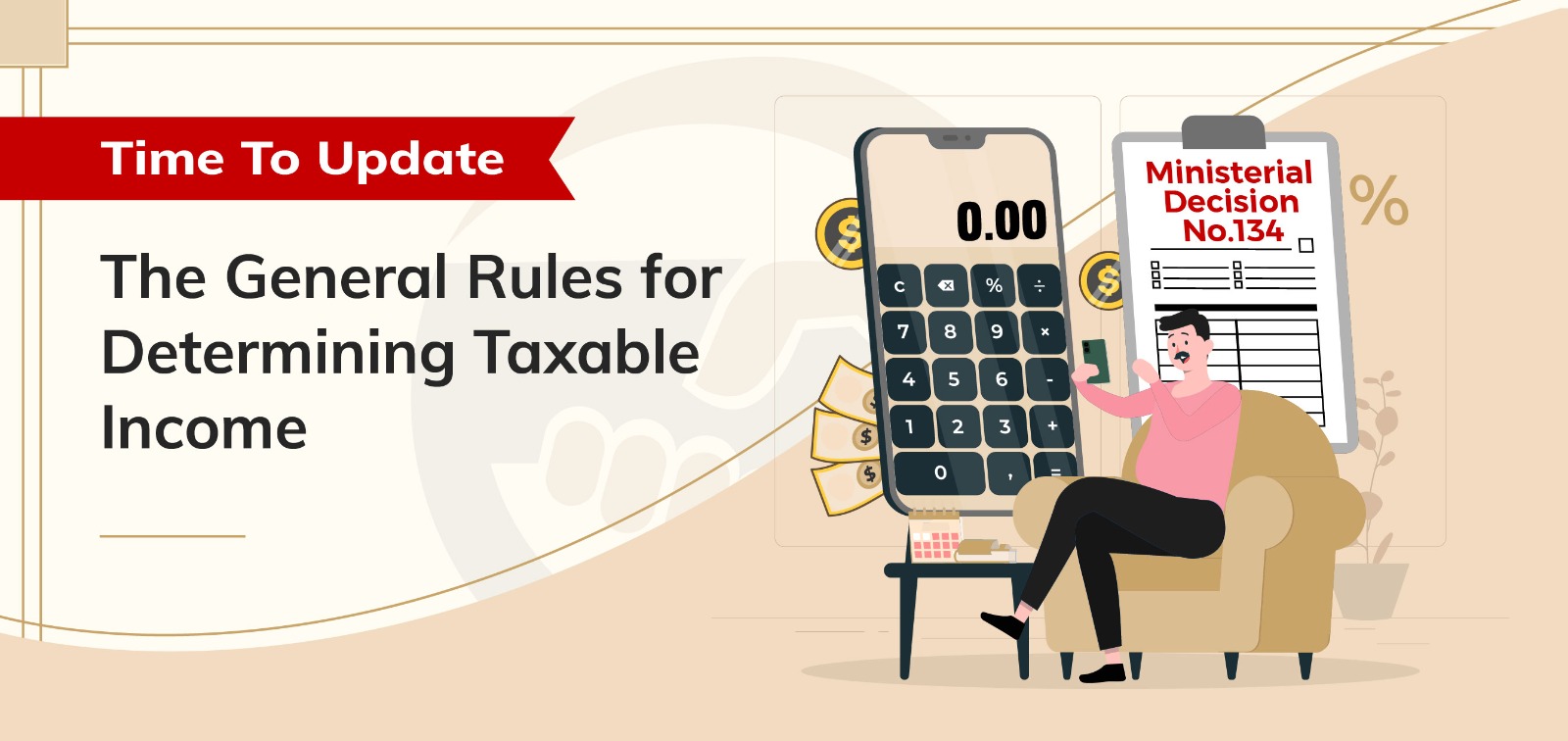
03 Jul 2023
Ministerial Decision No.134 of 2023 on the General Rules for Determining Taxable Income introduces several adjustments to the accounting income for calculating taxable income. These adjustments impact various aspects such as gains and losses, transfers between related parties, transfers within a qualifying group, business restructuring relief, partners in unincorporated partnerships, and deductions. The decision aims to provide clarity and guidelines for determining taxable income in accordance with the Corporate Tax Law.
- One of the key provisions in the decision is Article 2, which outlines adjustments to the accounting income. It states that realized or unrealized gains and losses reported in the financial statements should be included in the calculation of taxable income, provided that they are not subsequently recognized in the income statement. This ensures that the tax treatment aligns with the financial reporting treatment of these gains and losses.
.
Additionally, Article 2 addresses the replacement of the Equity Method of Accounting with the Cost Method of Accounting. If the Equity Method of Accounting is applied, adjustments should be made to reflect the effect of the Cost Method of Accounting, as allowed under the Accounting Standards. This adjustment ensures consistency in treating assets and liabilities when determining taxable income.
- Article 3 focuses on adjustments to the accounting income related to transactions with related parties. It establishes rules for calculating taxable income in asset or liability transfers between related parties. The adjustments aim to prevent potential tax avoidance.
- Article 4 introduces adjustments to the accounting income for transfers within a qualifying group that is not a tax group under the Corporate Tax Law. These adjustments exclude certain gains or losses that have not been recognized as taxable income under specific circumstances. The provision ensures that the taxable income of the transferee reflects the actual economic gain or loss resulting from the transfer.
- Similarly, Article 5 addresses adjustments to the accounting income for business restructuring relief. It outlines the exclusion of depreciation, amortization, or other changes in the value of assets or liabilities in relation to gain or loss that have not been recognized as taxable income. This provision aims to facilitate business restructuring while maintaining the tax system's integrity.
- Article 6 focuses on adjustments to the accounting income for partners in unincorporated partnerships. It stipulates that the partner's taxable income should exclude income or losses recognized by the unincorporated partnership. It recognizes the unique nature of partnerships and provides specific rules for determining taxable income.
- Article 7 deals with other adjustments on deductions. It emphasizes that deductible expenditures must meet specific conditions outlined in the Corporate Tax Law. Expenditures that do not meet these conditions should not be deducted. Depreciation, amortization, and other changes related to capitalized expenditure should not be deducted if they would not be considered deductible h ad it been an expenditure that is not capital in nature. However, when calculating gains or losses, it may be considered upon realizing the corresponding assets or liabilities.
- Article 8 introduces conditions for electing the use of realization basis. This is irrevocable, except under exceptional circumstances approved by the Authority. Banks and insurance providers that prepare financial statements on an accrual basis may recognize gains and losses on a realization basis only under specific conditions.
- Article 9 clarifies the definition of asset or liability realization. Transfers of assets or liabilities between taxable persons within qualifying groups or during business restructuring are not realized. Realization includes sale, disposal, transfer, settlement, and eliminating liabilities. These definitions clarify what constitutes a realization of assets or liabilities for tax purposes.
Ministerial Decision No.134 of 2023 introduces crucial rules for determining taxable income, offering guidance and clarity to corporate taxpayers. The decision's provisions cover various scenarios, including transfers within qualifying groups, business restructuring, partnerships, deductions, realization basis, and asset or liability realization. By establishing these rules, the decision aims to enhance consistency, fairness, and transparency in the corporate tax system. Businesses should carefully review the decision's implications to ensure compliance and accurate calculation of taxable income. Overall, this decision represents a significant step in the ongoing efforts to streamline corporate taxation and strengthen the integrity of the tax framework.



